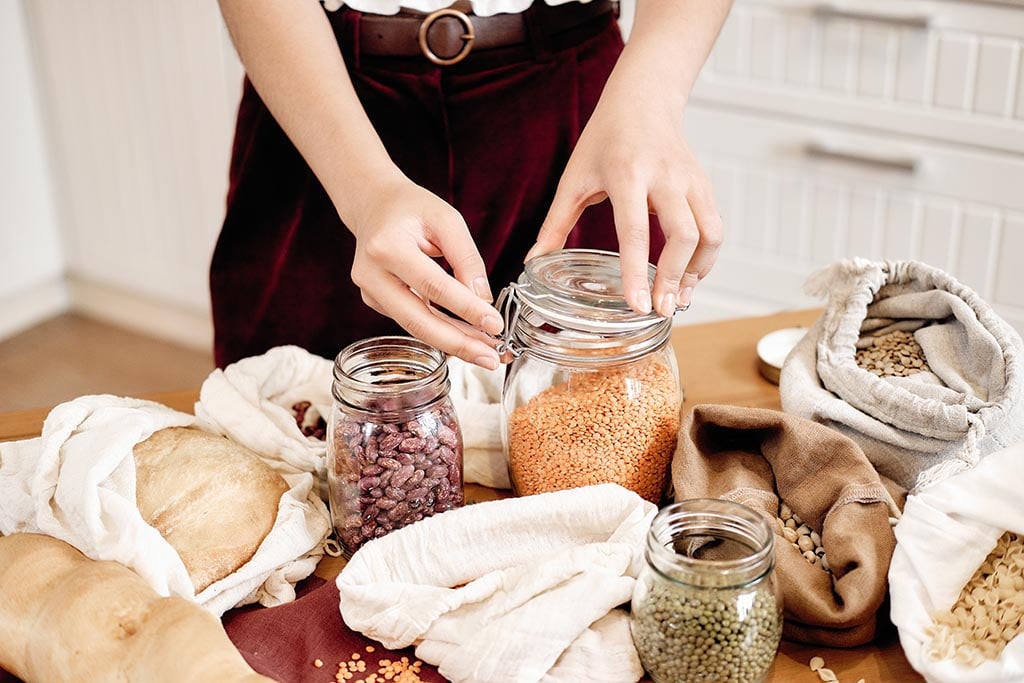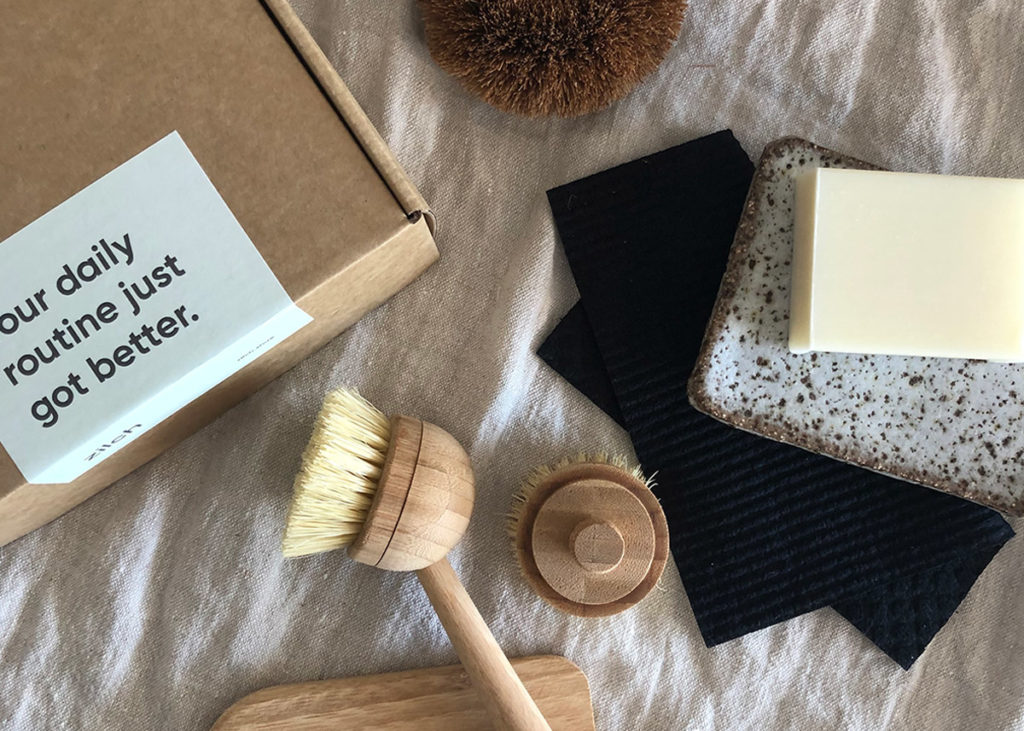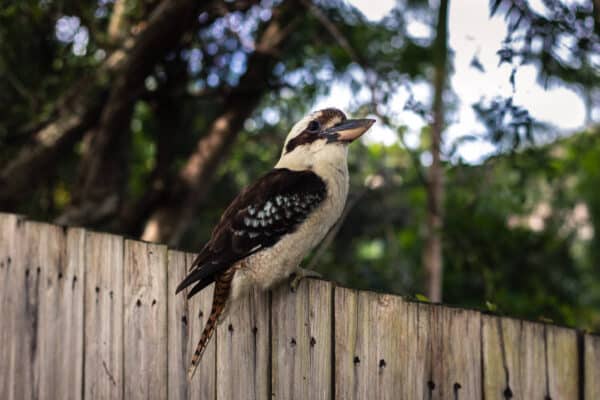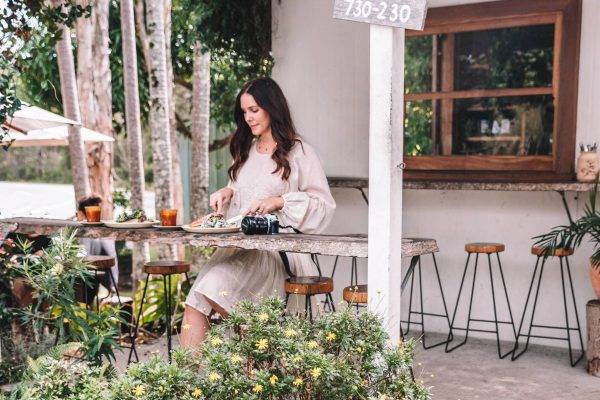When starting on your zero waste journey, an important first step is becoming more aware of the waste going into your bin, and being more aware of products that help reduce it.
The kitchen is a great place to start this journey, as it’s a major contributor to what ends up in your bins.
The good news is, it’s also a really easy and impactful place to start, and below are a few steps to help get you started.

Step 1: Reflect
Take stock of what you currently have in the kitchen. What do you actually use, and whats gathering dust under the kitchen sink?
Doing this little audit really helps you see the full picture with some fresh eyes. It’s surprising how many cleaning products are forgotten in our cupboards (very messy cupboards if it’s anything like our house!).
Make a mental note of ones you couldn’t live without, and ones you wouldn’t miss if they were never bought again. This will help you be intentional in your next steps.
Step 2: Research
Now that you have a better idea of what kitchen items you actually use, it’s good to understand what impact they are having on the environment.
Try to think about their full lifecycle here; what materials are they made of? How are they manufactured? How long do they take to break down? Don’t forget what they are packaged in!
This doesn’t need to be a PhD thesis, but taking a step back and researching the overall impact of a product makes it easier to know what alternatives to look out for on the shelves.
When I was researching kitchen products for myself at this step, one product I completely fell in love with was this dish brush. It’s made from sturdy and stylish bamboo, looks great in any kitchen, and is 100% home compostable. Bamboo is a common choice in eco products, as it can grow 3 feet in height in 24 hours! Being the fastest growing plant in the world makes it a really sustainable material choice, so if in doubt, go with bamboo options.
Step 3: Reduce
Look at the single-use items you regularly use and see if there are any opportunities to replace them with reusable ones, or combine products with one eco alternative.
Generally the best product alternatives you can buy are home compostable, and are better for the environment at every stage of their life cycle. These aren’t always convenient though, and at this step remember even small steps will make a big impact over time.
A great example of this is the Swedish dishcloth. It’s made from 100% natural fibres, comes in a stylish black (so it never looks grubby), absorbs 20x it’s own weight, and replaces 17 rolls of paper towels. If you consider even just the plastic packaging of all those paper towels, that is a huge impact you’re having over just one year!
Step 4: Replace
Finally, replacing some of your products — feel the satisfaction of throwing out that last plastic product in your kitchen!
There are a lot of great alternatives out there, but if you’ve followed the steps above, you’ll hopefully have your eyes on a few. If not, here are a few of the best I’ve found, without compromising on style.
- The dishwashing block from Minimal Essentials is the easiest way to reduce your plastic waste in the kitchen. It replaces 3 plastic bottles of dishwashing liquid with one completely zero waste bar. I was pleasantly surprised how far the bar goes too! You really only need a touch of it and it’ll suds up nicely, and it smells fantastic.
- Something I found harder to replace and find a sustainable swap for was my scourer. They are either those familiar little grubby green and yellow bricks made of plastic, or those metal ones I’ve always found really horrible to hold. I finally found one that’s perfect though! The coconut scourer by EcoCoconut. I really liked how it looked, and fell in love with how it feels to use. Great at getting rid of tricky bits on pots and pans, lasts for ages, and it can be chucked in the compost when it’s scrubbed its last dish.
It feels nice to have a new start, but you don’t need to do everything all at once.
These steps are here to help you make changes bit by bit, and over time add up to a really big impact. The important thing is to enjoy this journey and celebrate the small wins where you can.

Zilch Store – No Waste. No Plastic. No Bullshit.
I found it really overwhelming trying to compare all the eco alternatives out there, and that’s why I created Zilch, and thinking about my principles made it easier knowing what products to try.
Zilch was born so you don’t have to do the research or test all the eco products that just don’t cut the mustard. The kitchen range has been in the works or ‘testing phase’ for over a year before we were happy to go live with it.
I created a strict criteria for myself; 100% plastic-free, zero waste, ethically made, cruelty-free, palm oil-free, vegan, toxin-free, support local, reduced carbon footprint & brands that give back and are making a difference in the community.


